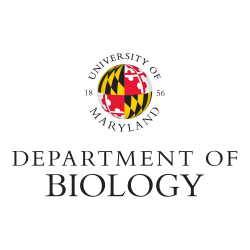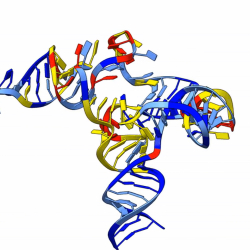College Welcomes 10 New Faculty Members
The College of Computer, Mathematical, and Natural Sciences welcomes four new tenure/tenure-track faculty members and six lecturers to the University of Maryland. Following are brief introductions to the new faculty members.
Niwaer Ai is a lecturer in the Department of Computer Science who will be teaching the courses “Organization of Programming Languages” and “Introduction to Computer Systems” this fall.He earned his doctorate incomputer science from the University of Nebraska-Lincoln in 2011 and his master’s degree in information technologies and control from Chang’an University in China in 2002.His areas of interest include grid and cluster computing, real-time systems and wireless sensor networks.
Marine Carpuat is an assistant professor in the Department of Computer Science with a joint appointment in the University of Maryland Institute for Advanced Computer Studies. A member of the university’s Computational Linguistics and Information Processing Lab, Carpuat is teaching the course “Computational Linguistics 1” this fall. Carpuat earned her Ph.D. in computer science from the Hong Kong University of Science and Technology in 2008, received an engineering degree from the French Grand Ecole Supélec, and completed her undergraduate studies at Sainte Geneviéve and Supélec. Previously, she was a research scientist at the National Research Council of Canada and a postdoctoral researcher at the Columbia University Center for Computational Learning Systems.Her research focuses on natural language processing, specifically on designing computational models to improve language-processing applications.
Steven Greg Chadwick is a lecturer in the Department of Mathematics. He completed his doctorate in 2012 at Indiana University. Previously, he was a visiting assistant professor of mathematics at the University of California, Riverside. He is interested in algebraic topology research.
Heidi Fisher is an assistant professor in the Department of Biology. She received her bachelor’s degree in biology and biological science in 2000 and her master’s degree in biology in 2002 from the University of California, San Diego. Fisher also earned a doctorate in biology from Boston University in 2006. She completed a postdoctoral fellowship at Harvard University and the Howard Hughes Medical Institute. Fisher’s lab investigateshow cooperation, competition and conflict influence reproductive trait evolution.
Elizabeth Griffith is a lecturer in the Department of Chemistry and Biochemistry.Griffith received her bachelor’s degree in chemistry from the University of Maryland, Baltimore County (UMBC), in 2009, and her doctorate in physical chemistry from the University of Colorado Boulder in 2014.Previously, she was awarded a NASA Earth and Space Science Graduate Fellowship.
Sarah Henson-Darko is a lecturer and master teacher in the Terrapin Teachers program. Sarah attended The College of Saint Rose, where she earned a bachelor’s degree in biology. She worked as a staff scientist for a groundwater consulting firm before returning to graduate school, where she earned her master’s degree in secondary science education at UMD. She spent four years teaching high school science in Montgomery County Public Schools at Northwood High School, followed by four years teaching middle school science at Two Rivers Public Charter School, an expeditionary learning school in Washington, D.C.
Marion Le Voyer is a lecturer and assistant research scientist in the Department of Geology. She received her doctorate from Blaise Pascal University in Clermont-Ferrand, France, in 2009. Previously, she was an assistant research scientist in the department and a postdoctoral fellow in a joint position between the Department of Mineral Sciences at the Smithsonian’s National Museum of Natural History and the Department of Terrestrial Magnetism at the Carnegie Institution. Le Voyer’s research interests include the global cycling of volatiles in magmatic systems; degassing processes and eruption dynamics; and melt inclusions, glasses, crystal zonation and diffusion clocks.
Pedram Sadeghian is a lecturer in the Department of Computer Science. Sadeghian earned his doctorate in computer science and engineering from the University of Louisville in 2006. Previously, Sadeghian was alecturer in computer science at UMBC and at Howard Community College. His interests include data mining, virtual environments and fractal theory.
Takumi Saegusa is an assistant professor in the Department of Mathematics, where he is teaching the course “Applied Probability and Statistics II” this semester. He received a Bachelor of Laws degree in political science from the University of Tokyo in 2002, and a master’s degree in mathematics from California State University, Northridge, in 2005. In 2012, Saegusa completed his doctorate in biostatistics from the University of Washington. Previously, he was a postdoctoral fellow at the University of Washington and the Fred Hutchinson Cancer Research Center. His research involves the development of theory and methods for biostatistical problems arising from complex sampling designs.
Nathan Swenson is an associate professor in the Department of Biology. Swenson received his bachelor’s degree in biology in 2001 from St. Olaf College, his master’s degree in biology from New Mexico State University in 2004, and his doctorate in ecology and evolutionary biology with a minor in global change from the University of Arizona in 2008. Previously, he was an associate professor in the Department of Plant Biology at Michigan State University and has received a Guggenheim Fellowship. Swenson conducts integrative plant ecology and evolution research with a focus on the tropics.
Writer: Rachael Romano






